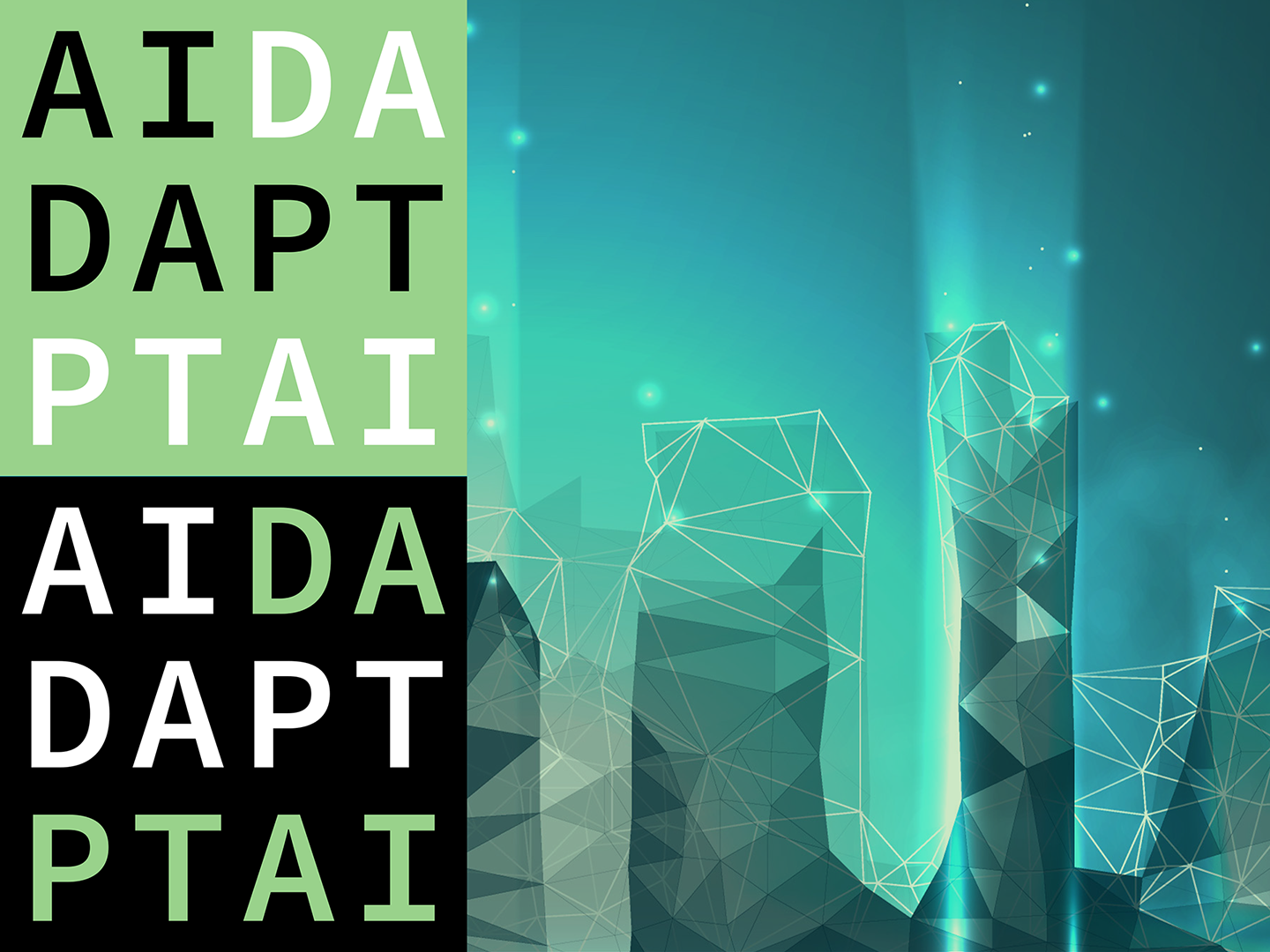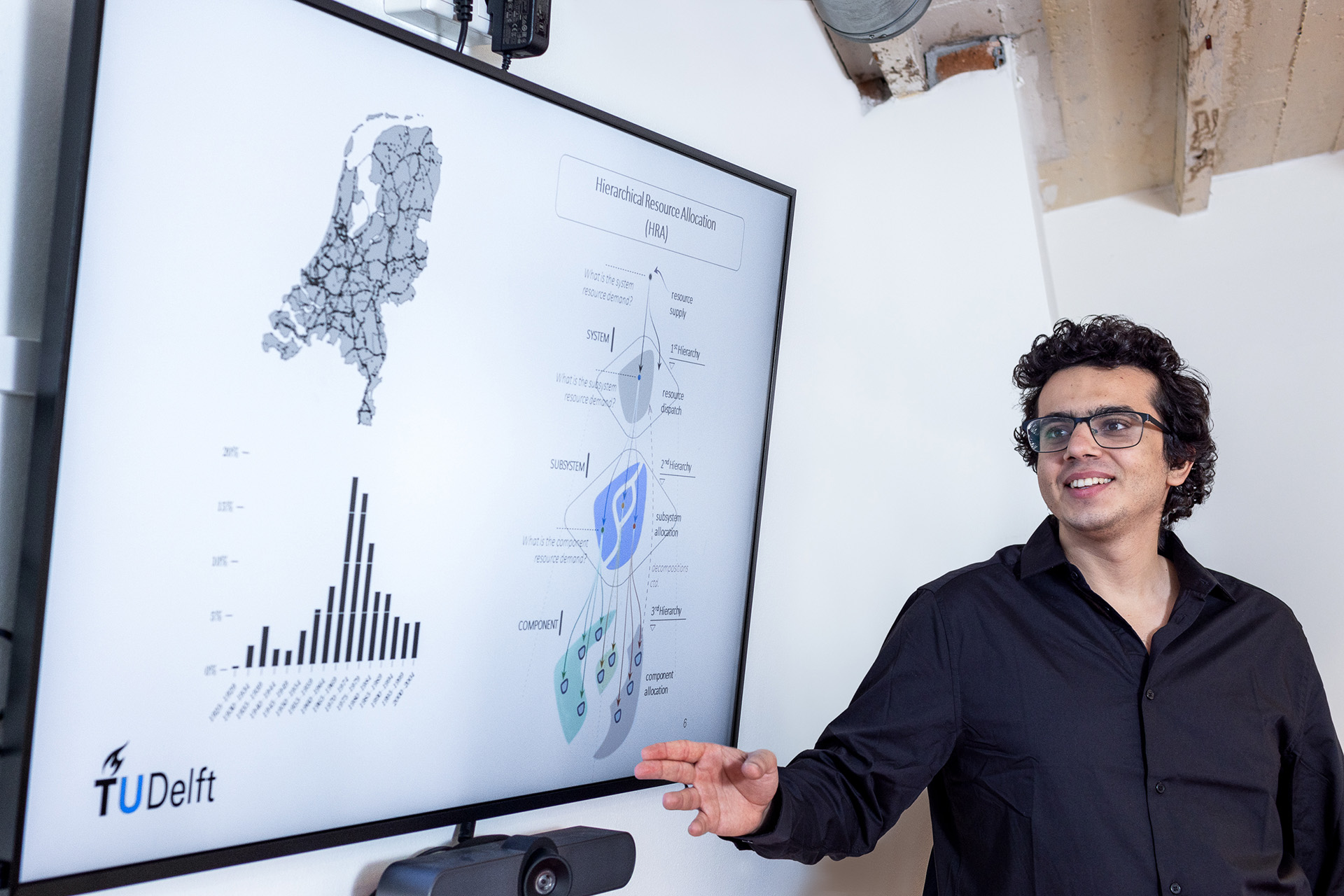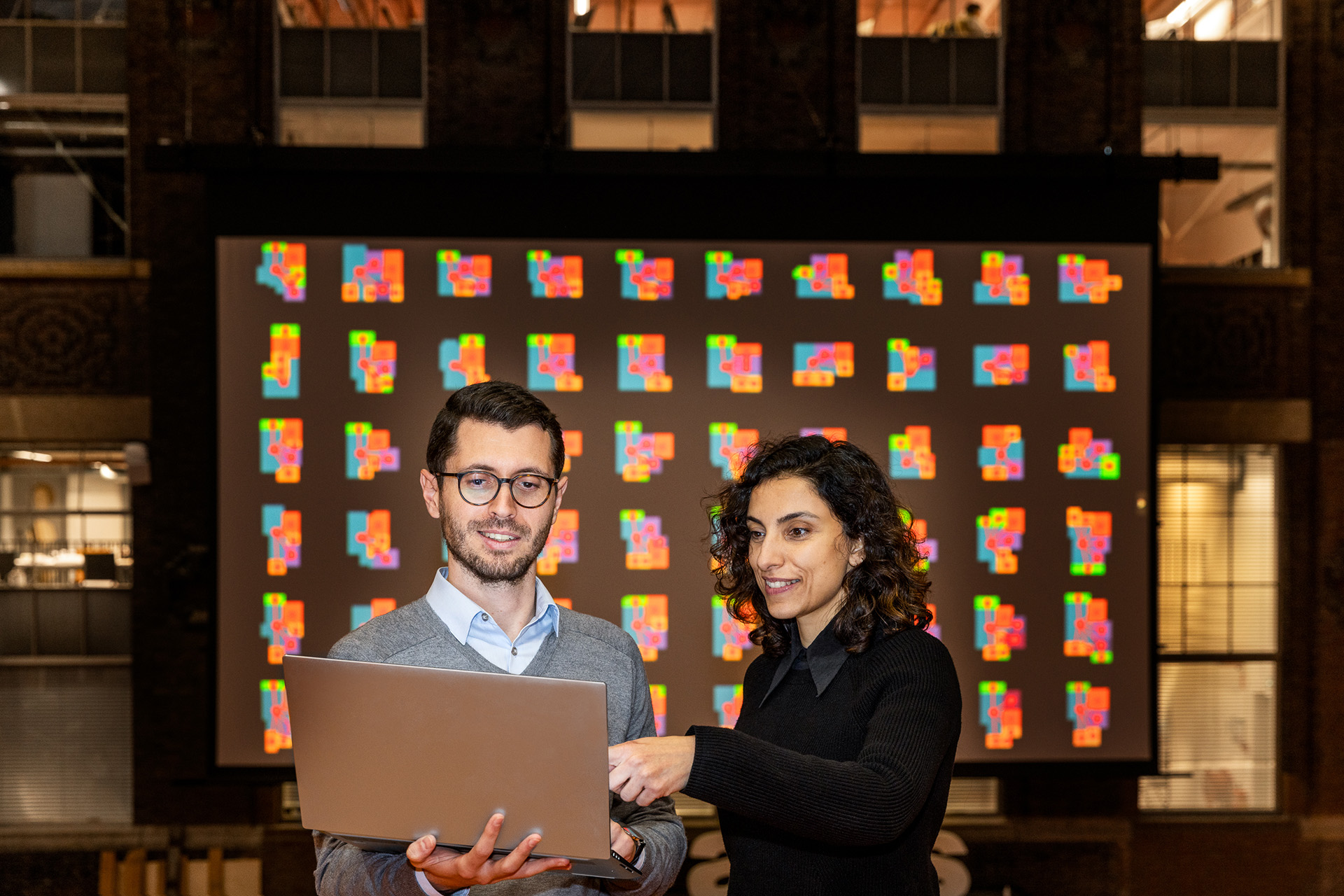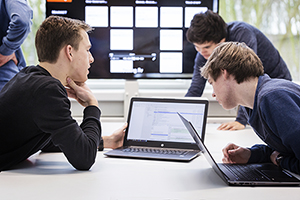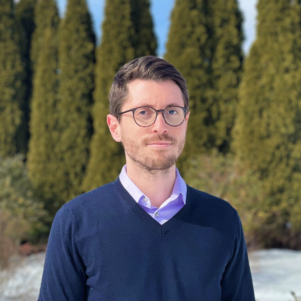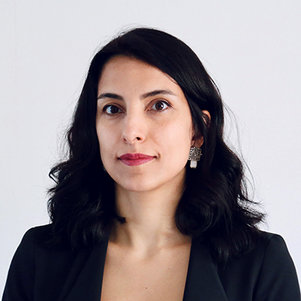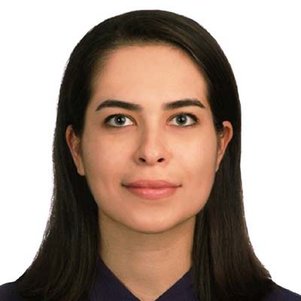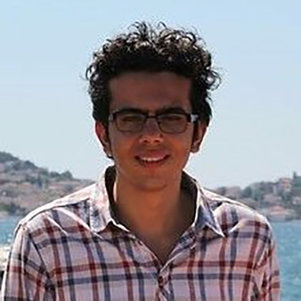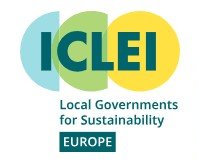AiDAPT
AI for a sustainable and resilient built environment
Empowering decision-making processes of architects and engineers through AI, across different scales and life-cycle design phases of the built environment, is a key lever for the necessary sustainability transitions in the age of data and digitalization.
At AiDAPT, computer vision, data science, and decision optimization methods come together through the development of deep learning, reinforcement learning, and uncertainty quantification frameworks that help us analyze and synthesize decisions for architectural and structural systems. This entails operation and reasoning in the complex spaces created by the confluence of diverse imagery data, noisy sensory measurements, virtual structural simulators, and uncertain numerical models. Application themes of interest range from automatic recognition of architectural drawings in large databases and generative design recommendations (initial design phase) to predictive intervention planning for life extension, structural risk mitigation, and multi-agent optimization of built systems (life-cycle optimization phase).
Bridging fundamental and applied AI, AiDAPT aims at creating new scientific paradigms towards a more reliable and sustainable built environment.
The AiDAPT Lab is part of the TU Delft AI Labs programme.
Education
Courses
- Fundamentals of AI Programme (CS)
- CORE - Structural Analysis (ABE)
- Bend & Break Minor (CEG)
- Computational Intelligence for Integral Design (ABE)
- Interactive architecture workshop and studio (ABE)
- Delivery society studio (ABE)
- Delft Lectures on Architectural Design and Research Methods (ABE)
- MSc Projects in AI & optimization for structural/architectural systems (ABE,CEG,CS)
Resources
Master Projects (Openings)
- MSc project opportunities are available in the areas of computer vision, deep learning, reinforcement learning, and Bayesian networks for structural and architectural applications. Please contact the lab coordinators for further information at aidaptlab@tudelft.nl.
Ongoing Master Projects
- Maintenance planning of monitored structures through deep reinforcement learning (CEG, Christos Lathourakis)
- AI-driven structural adaptation policies in a changing climate (CEG, Sammie Knopert)
- Exploring optimal structural design spaces through generative deep learning models (ABE, Stella Pavlidou)
- Occupant comfort prediction through machine learning models (ABE, Maryam Aboueimehrizi)
- Data-efficient representation learning for topological image data (Emanuel Kuhn)
- Object detection for illustrated imagery (Devin Lieuw A Soe, Haoran Wang)
Finished Master Projects
- Topology optimization formulations for cast glass structural components (ABE, Anna Maria Koniari)
- Using cell structure patterns to train generative AI models to explore topology design ideas (ABE, Stella Pavlidou, Namrata Barhua)

